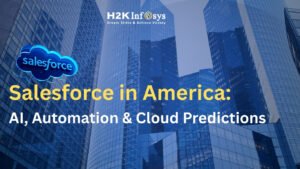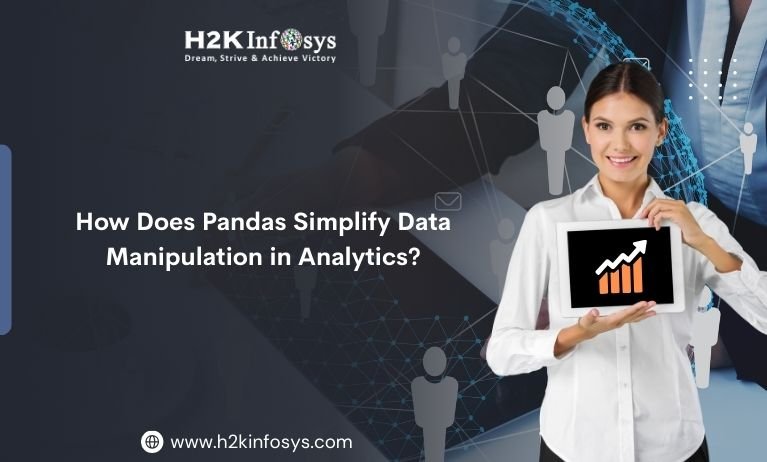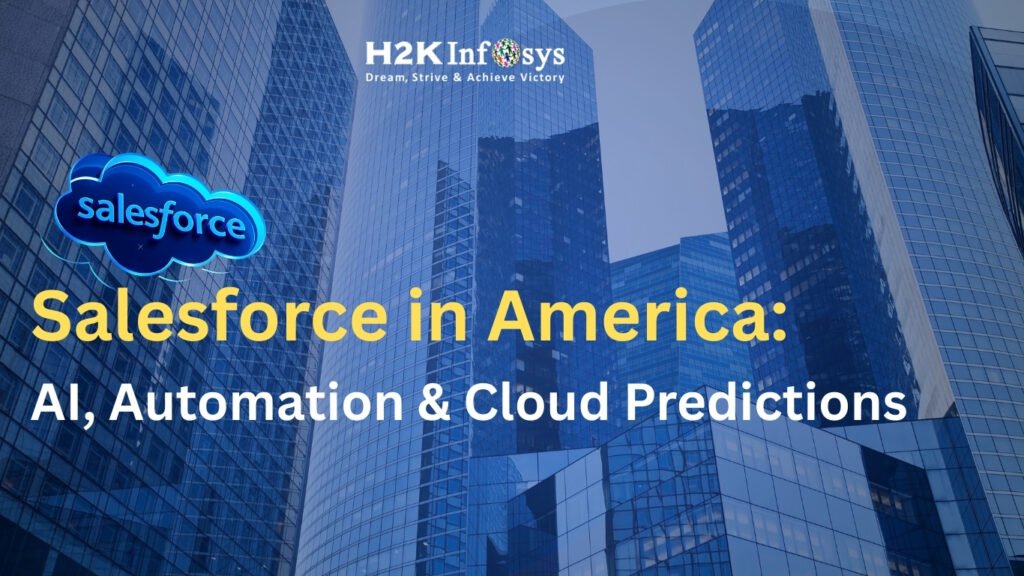Introduction
The world today generates vast amounts of data every second. Businesses, governments, and organizations rely on data to make strategic decisions. However, traditional data management tools cannot efficiently handle massive data volumes. This challenge led to the emergence of Big Data and its enabling technology, Hadoop.
Many professionals wonder, “Is Big Data the same as Hadoop?” or “How do they differ?” While both are closely related, they serve distinct purposes. In this guide, we will explore the differences between Big Data and Hadoop, their applications, and why learning Hadoop is crucial in today’s data-driven world.
In the modern-day digital world, everything is happening digitally, and each action creates a lot of data. For every business, this data is crucial since it tells about the customer behavior, trends, pulses, etc. Hence, we can see a lot of importance given to data and professionals who can make sense out of data and help the business. When it comes to handling Big Data and Hadoop systems like Hadoop come into the picture naturally. That’s why there is a huge demand for Hadoop Certification Courses. Many people use both Hadoop and Big Data in a similar meaning or interchangeably. However, they have several differences and let us look at them in this post.
What is Big Data?
Definition
Big Data refers to extremely large datasets that traditional database systems cannot process efficiently. These datasets require specialized tools and techniques to store, process, and analyze information.
The data saved on the internet is massive, and the amount of creation by each person per second is enormous. These data can be structured, semi-structured, or unstructured. All types of data with a massive size are considered Big Data. Big data eliminates the problem of collecting, analyzing, and processing of data that is associated with traditional methods. Big Data involves 7 “V”s. They are Velocity, Variety, Volume, Value, Veracity, Visualization, and Variability. Since handling this much data requires special skills, the demand is more, and people are aspiring to complete big data certification courses.
Key Characteristics of Big Data (The 5 Vs)
Big Data is often defined by the following five characteristics:
- Volume – Enormous amounts of data generated daily from social media, IoT devices, financial transactions, etc.
- Velocity – The speed at which data is generated and processed (e.g., real-time stock market analysis).
- Variety – Data comes in multiple formats (structured, unstructured, semi-structured) from different sources.
- Veracity – Data quality and accuracy need to be maintained for effective decision-making.
- Value – Extracting meaningful insights from Big Data to drive business growth.
Types of Big Data
Big Data can be classified into:
- Structured Data: Data stored in relational databases (e.g., SQL tables).
- Unstructured Data: Data without a predefined format (e.g., images, videos, emails).
- Semi-Structured Data: Data with some organizational structure but not fully relational (e.g., JSON, XML files).
Examples of Big Data in the Real World
- Healthcare: Hospitals use Big Data for patient record analysis and predictive healthcare.
- E-commerce: Amazon uses customer browsing data for personalized recommendations.
- Finance: Banks use Big Data analytics to detect fraudulent transactions.
- Social Media: Platforms like Facebook and Twitter analyze user behavior to enhance user experience.
- Transportation: Companies like Uber and Lyft utilize Big Data for route optimization.
- Cybersecurity: Organizations analyze vast amounts of log data to detect and prevent cyber threats.
What is Hadoop?
Definition
Hadoop is an open-source framework that allows for the storage, processing, and analysis of Big Data across distributed computer clusters. It was developed by the Apache Software Foundation to handle large-scale data efficiently.
Hadoop is a software suite that is available on an open-source license. The MapReduce system develops this software. It is one of the highest level apache projects that is written using Java language. It is the system that helps to handle and interpret the massive amount of data. Many Data Analytics courses online teach Hadoop System.
Core Components of Hadoop
- HDFS (Hadoop Distributed File System): Stores massive data across multiple machines.
- MapReduce: A programming model for processing data in parallel.
- YARN (Yet Another Resource Negotiator): Manages cluster resources.
- HBase: A NoSQL database for real-time data storage and retrieval.
- Apache Hive: A data warehouse system for querying and managing structured data.
- Apache Pig: A high-level scripting language for processing data in Hadoop.
- Apache Spark: A fast, in-memory data processing engine used alongside Hadoop.
Why is Hadoop Important for Big Data?
Traditional databases struggle with massive datasets, but Hadoop solves this issue by:
- Storing and processing petabytes of data efficiently.
- Running on commodity hardware (cost-effective computing clusters).
- Offering high fault tolerance (automatic recovery from node failures).
- Supporting parallel processing for faster data analysis.
- Providing scalability to handle increasing data loads.
- Allowing real-time analytics through integration with Apache Spark.
Real-World Applications of Hadoop
- Retail: Walmart uses Hadoop to analyze customer behavior.
- Banking: Fraud detection algorithms run on Hadoop clusters.
- Healthcare: Hadoop processes large-scale medical data for disease predictions.
- Social Media: Facebook stores and analyzes billions of user interactions using Hadoop.
- Advertising: Google and other ad-tech companies use Hadoop for targeted advertising.
Difference Between Hadoop and Big Data
| Aspect | Big Data | Hadoop |
|---|---|---|
| Definition | Large, complex datasets | A framework to process Big Data |
| Purpose | Describes the problem | Provides the solution |
| Components | Data sources, storage, analytics | HDFS, MapReduce, YARN |
| Processing | Requires tools for analysis | Uses distributed computing |
| Storage | Data lakes, NoSQL, cloud storage | Hadoop Distributed File System |
| Technology | Includes AI, ML, analytics tools | Focuses on data processing |
| Security | Requires advanced tools | Provides built-in security features |
| Real-Time Analysis | Requires additional platforms | Supports Apache Spark for real-time processing |
| Examples | Social media, IoT, healthcare | Facebook, Walmart, Netflix |
Storage
Big Data and Hadoop, In the Hadoop system, HDFS stores a huge amount of data. In Big Data, it is very challenging to store since the structure is unstructured, semi-structured, and unstructured.
Accessibility
In the Hadoop environment, access to the data is easier, but in Big Data, it is more challenging in Big Data and Hadoop.
Definition
Big Data and Hadoop, Big data refers to the huge volume of data that will be in structured or unstructured form. Hadoop is a software framework where it can easily store and process data.
Significance
Hadoop stores and processes huge data to create meaningful and actionable insights; on the other hand, Big Data has little or no value until it is used to process data.
Type
Hadoop system is a type of solution that resolves the complex problems of processing data. To get meaning in big data, it needs to be processed.
Developers
Big Data and Hadoop, In Hadoop, developers are primarily responsible for working on coding and processing the data with those codes. In Big, Data developers focus on developing applications using MapReduce, Pig, Spark, Hive, etc.
Major companies
The companies such as Amazon, AOL, Facebook, Yahoo, IBM use Hadoop. Facebook uses Big Data in a big way, and it produces 500 TB of data daily.
Veracity
It denotes how reliable your data is. The output of Hadoop is more useful, and it can be used in the decision-making process. But Big Data cannot be trusted or used to make decision making since it involves numerous formats and varieties. Unless it is processed, one cannot rely upon it.
Nature
Big Data is considered a valuable asset; it consists of numerous varieties of info, humongous data, and high velocity. It is not a tool. On the other hand, Hadoop is a tool, and it is used to bring value from assets. This is the primary difference between Big Data and Hadoop.
Representation
Big Data represents the collection of technologies related to data. Hadoop is one of the frameworks out of many which are used in Big Data.
Speed
Big Data and Hadoop in Hadoop speed is more compared to Big Data. Big Data takes a very long time when you compare it with Hadoop.
Big challenges
The big challenges of Big Data are processing, securing, and storing a huge amount of data. On the other hand Hadoop is free from these types of problems.
Applications
Big Data and Hadoop in Hadoop is used mainly to solve three types of components: HDFS to store, YARN for resource management, and MapReduce for parallel processing. Big Data is used in many businesses across all sectors, including IT, the retail industry, banking and finance, healthcare, transportation, telecommunication, etc.
Which One Should You Learn?
Big Data and Hadoop If you are interested in a career in data analytics, machine learning, or AI, then understanding Big Data concepts is crucial. However, to work with and manage Big Data efficiently, learning Hadoop is essential.
Why Learn Hadoop?
- Growing Demand: Companies worldwide are adopting Hadoop for Big Data management.
- High Salaries: Hadoop professionals earn competitive salaries.
- Job Market Expansion: Data-driven decision-making is increasing Hadoop-related job opportunities.
- Versatility: Hadoop integrates with cloud platforms like AWS and Azure.
Why Choose H2K Infosys for Hadoop Training?
Big Data and Hadoop H2K Infosys offers an industry-leading Big Data and Hadoop online training and placement course designed for beginners and professionals.
Key Features of the Training
- Comprehensive Big Data and Hadoop Training
- Hands-on experience with real-time projects
- Guidance for Hadoop certifications
- Job-oriented curriculum with placement support
- Big Data and Hadoop Training by industry experts with live instructor-led sessions
- Flexible schedules to accommodate working professionals
Conclusion & Call to Action
Big Data and Hadoop are transforming Industries worldwide. While Big Data describes the problem, Hadoop provides a practical solution to manage and process vast datasets efficiently. If you want to build a career in data analytics, data engineering, or machine learning, learning Hadoop is a must!
Get started today! Enroll in H2K Infosys’ expert-led Big Data and Hadoop online training to gain hands-on experience and become a Hadoop expert.


























